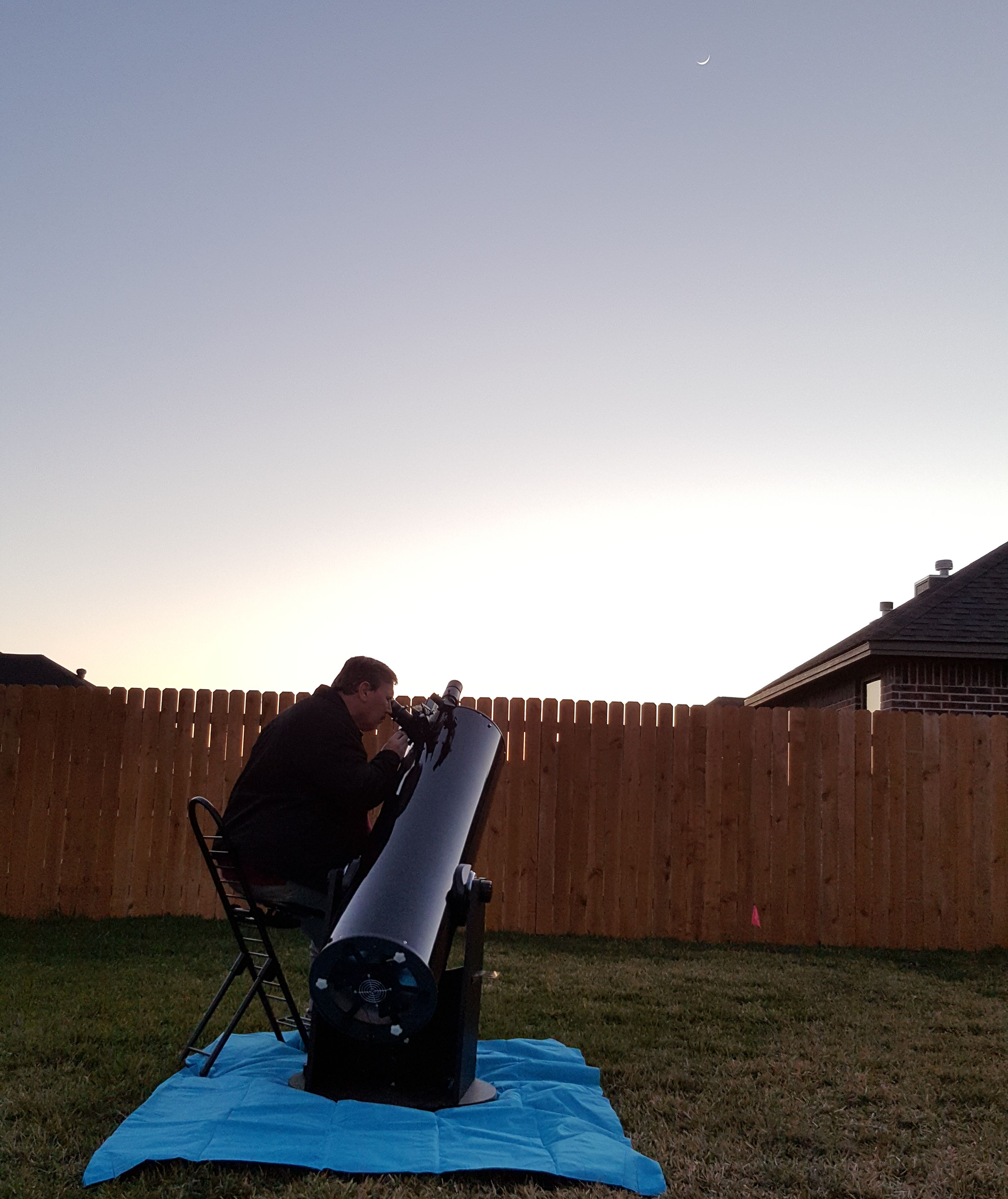
| Observer: | Tom Campbell |
| Location: | College Station, Texas (Long: 101°56'W Lat: 33°47'N) |
| Telescope: | Zhumell 12" f/5 Dobsonian (Biggie Z) |
| Eyepieces: | 1.25" - 15mm 82° (100x), 10mm Plössl (150x) |
| Seeing: | Stable (8/10) |
| Transparency: | Clear |
| Temperature: | Low 50s to start, but dropping into the 40s by evening's end. |
After nearly six weeks of bad weather, the sky was finally clear. I set up Biggie Z and my other equipment. While checking collimation, I decided to take a quick peek at the crescent Moon. My nephew snapped this photo:

Then I went back inside to print out an observing list. I noticed I still had several targets left in the constellation of Orion. Since it would be well-placed in the sky all evening, I decided to start there.
| σ Ori | Orion | Multiple Star | 8:50pm CST |
| 48 Ori | RA: 5h 38m 45s | Dec: -2° 36' | Mag: 4.2, 5.1, 8.8, 6.6 |
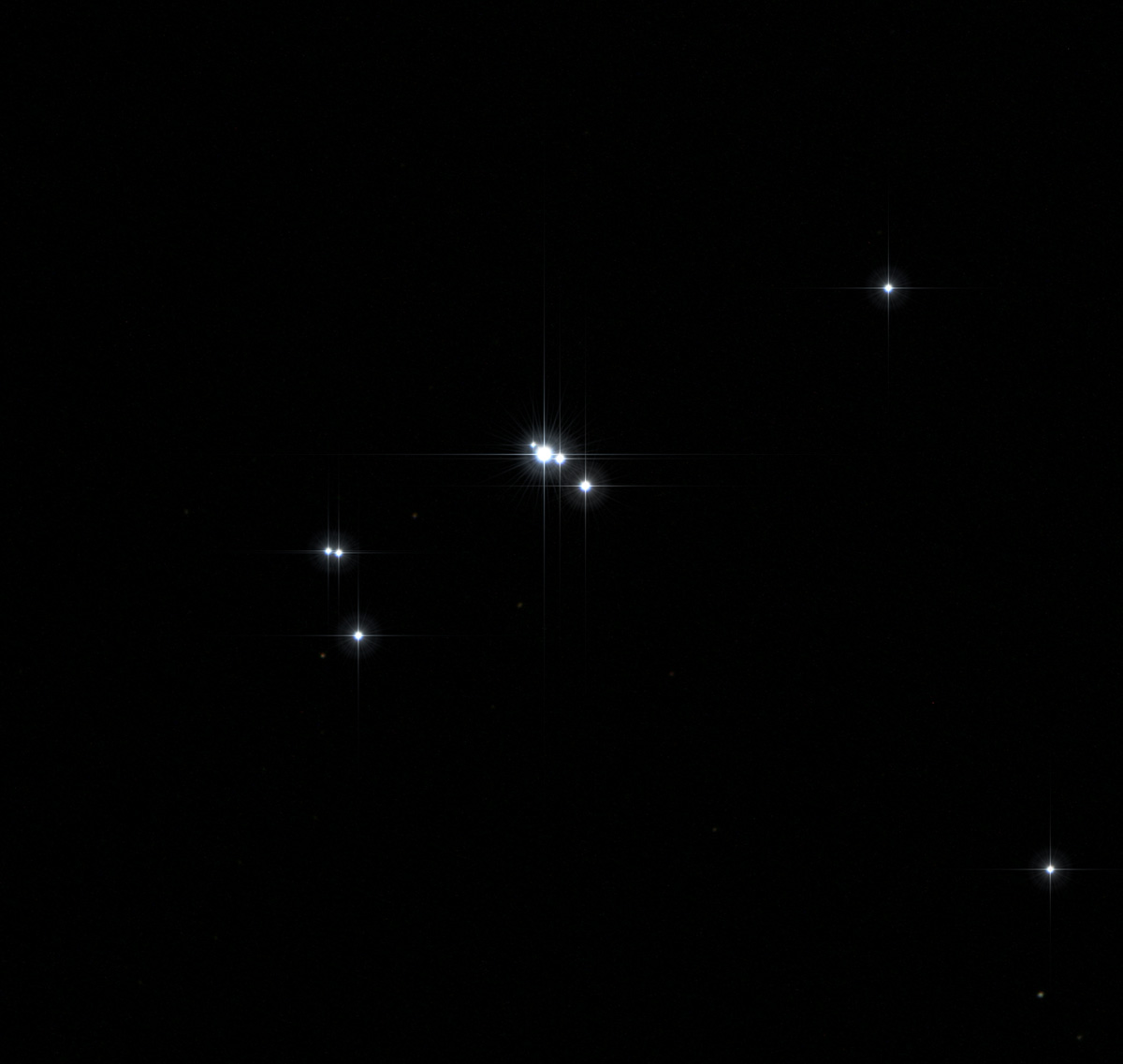 |
I'd forgotten how beautiful this star system is. I could detect 4 components at 100X. The brightest member, AB, appears white, but couldn't be separated. The faintest member, C is closest to it, and appears blue. Just a bit farther away from AB is another white star, D, just a bit brighter than the blue one. E is the second brightest member and is about 3 times farther away than the others. It also appears white. |
||
| Σ761 | Orion | Multiple Star | 8:55pm CST |
| RA: 5h 38m 45s | Dec: -2° 36' | Mag: | |
 |
This multiple star system sits in the same field as &sigma Ori. The brightest component, A, sits well away from the other two members, B and C. B and C appear close together and of a similar magnitude. All three appeared white. |
||
| NGC 2169 | Orion | Open Cluster | 9:05pm CST |
| "37" Cluster | RA: 6h 8m 24s | Dec: +13° 57' | Mag: 5.9 |
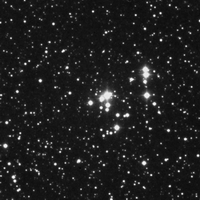 |
I could readily see a backwards Sigma (the "3") formed with 10-11 stars and a "7" formed by 6 additional stars. |
||
| NGC 2194 | Orion | Open Cluster | 9:10pm CST |
| RA: 6h 13m 46s | Dec: +12° 48' | Mag: 8.5 | |
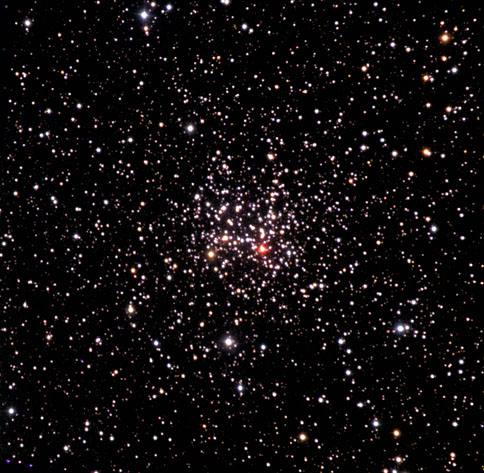 |
This cluster is near NGC 2169. It is fainter and smaller, but has more stars. With direct vision, I counted about a dozen stars, but it appears a lot richer with averted vision. This reminds me of the Butterfly Cluster, as it has a line of stars on two ends, each arcing outward. |
||
| NGC 2186 | Orion | Open Cluster | 9:15pm CST |
| RA: 6h 12m 6s | Dec: +5° 28' | Mag: 8.7 | |
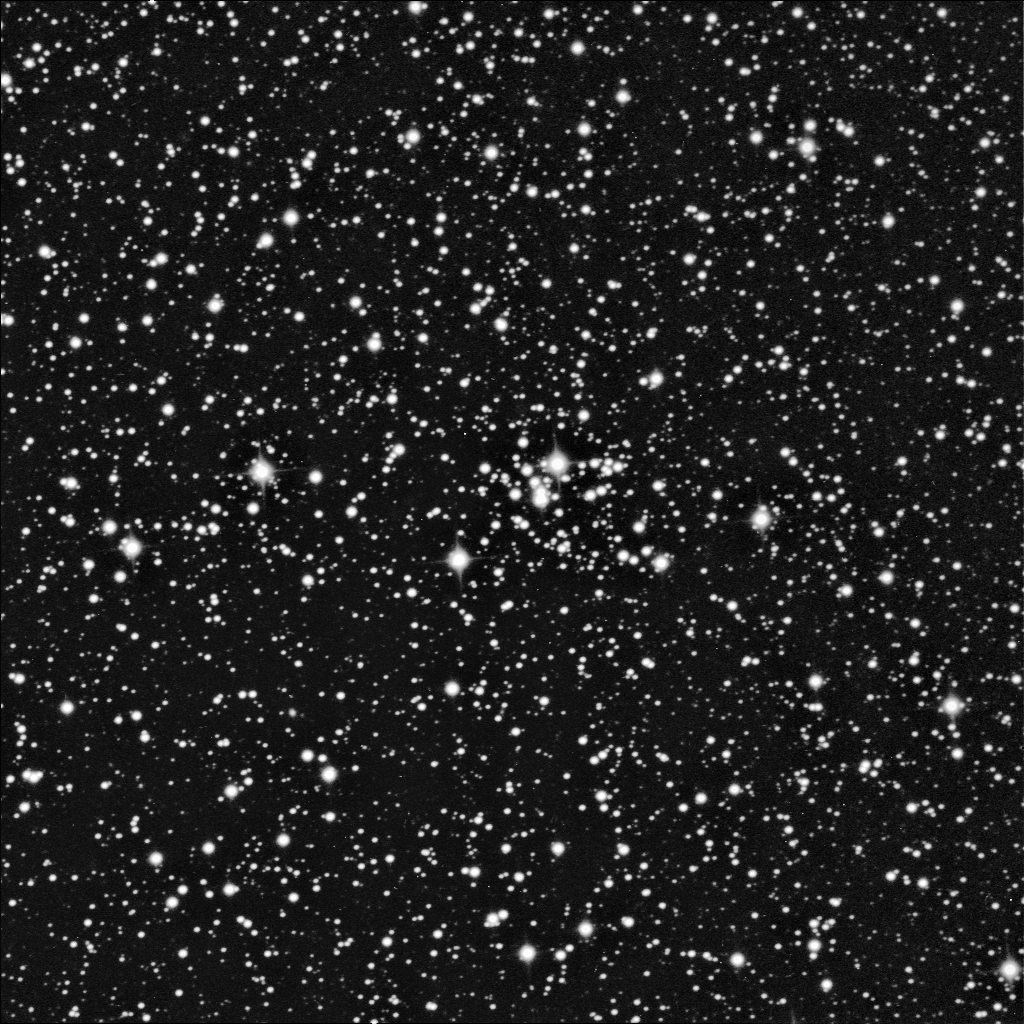 |
This open cluster is small, with fairly bright members. At 150X, I could detect a line of 3-4 stars in the center of the cluster, with two bright stars on either end, and a smattering of other stars sprinkled throughout. With averted vision, I could detect a bit of nebulosity, indicating some unresolved stars. |
||
| NGC 1999 | Orion | Bright Nebula | 9:45pm CST |
| RA: 5h 36m 23s | Dec: -6° 43' | Mag: | |
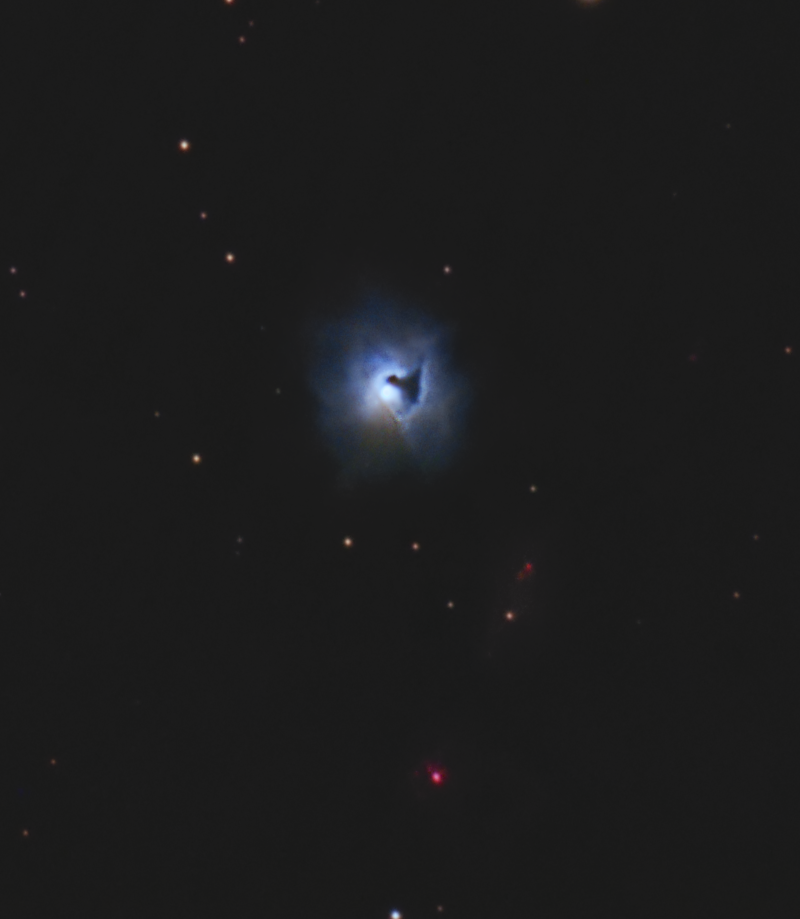 |
This appears as a small, faint patch of nebulosity South of M42, surrounding a faint star. There's supposed to be a small Bok globule inside it, but I don't have enough contrast to detect that tonight. |
||
| NGC 1973/5/7 | Orion | Bright Nebula | 10:00pm CST |
| Running Man | RA: 5h 35m 16s | Dec: -4° 23' | Mag: 7.0 |
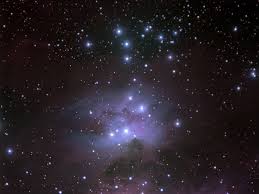 |
Just north of M42 and M43, this nebula is easy to spot. However, getting to see much detail is difficult. I looked at this earlier this evening, and could barely make out a smudge of nebulosity. Now, however, the image had improved so that I was able to detect some dark lanes throughout. However, I couldn't see enough of the dark lanes to make out the "running man" shape. If this wasn't so close to the stunning M42, it would probably be more well-known. |
||
| NGC 2022 | Orion | Planetary Nebula | 10:15pm CST |
| RA: 5h 42m 6s | Dec: +9° 5' | Mag: 12.8 | |
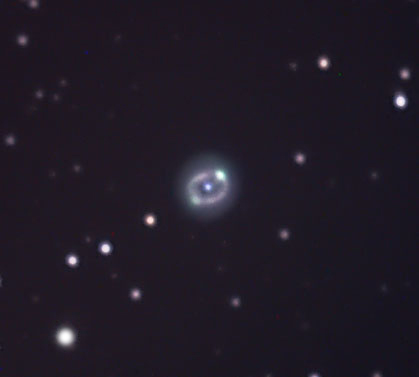 |
This is a small planetary nebula near the head of Orion. 150X reveals a faint small patch of fuzz. With direct vision, it almost disappears. Using averted vision, it is a bit larger with a central star. It is not quite circular in shape. |
||
| M41 | Orion | Open Cluster | 10:30pm CST |
| NGC 2287 | RA: 6h 46m 0s | Dec: -20° 46' | Mag: 4.5 |
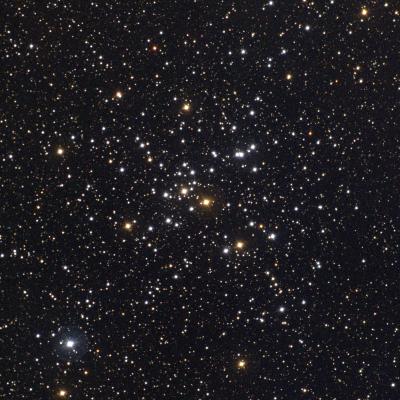 |
This is a gorgeous cluster. It is large, filling my FOV in my 82° 15mm eyepiece, and contains dozens of stars. A star at the center appears a bit yellowish, and there's a bright orange star not far from it. The shape is somewhat like a pinwheel, with four arcs of stars coming off the center. |
||
I tried to look at a few more objects, but the dew was quickly overwhelming my eyepieces and I decided to call it quits. Even with my dew heater running on full blast, my Telrad was fogging up to the point where it was useless. Jupiter was just clearing the trees, but he'd have to wait for another day.